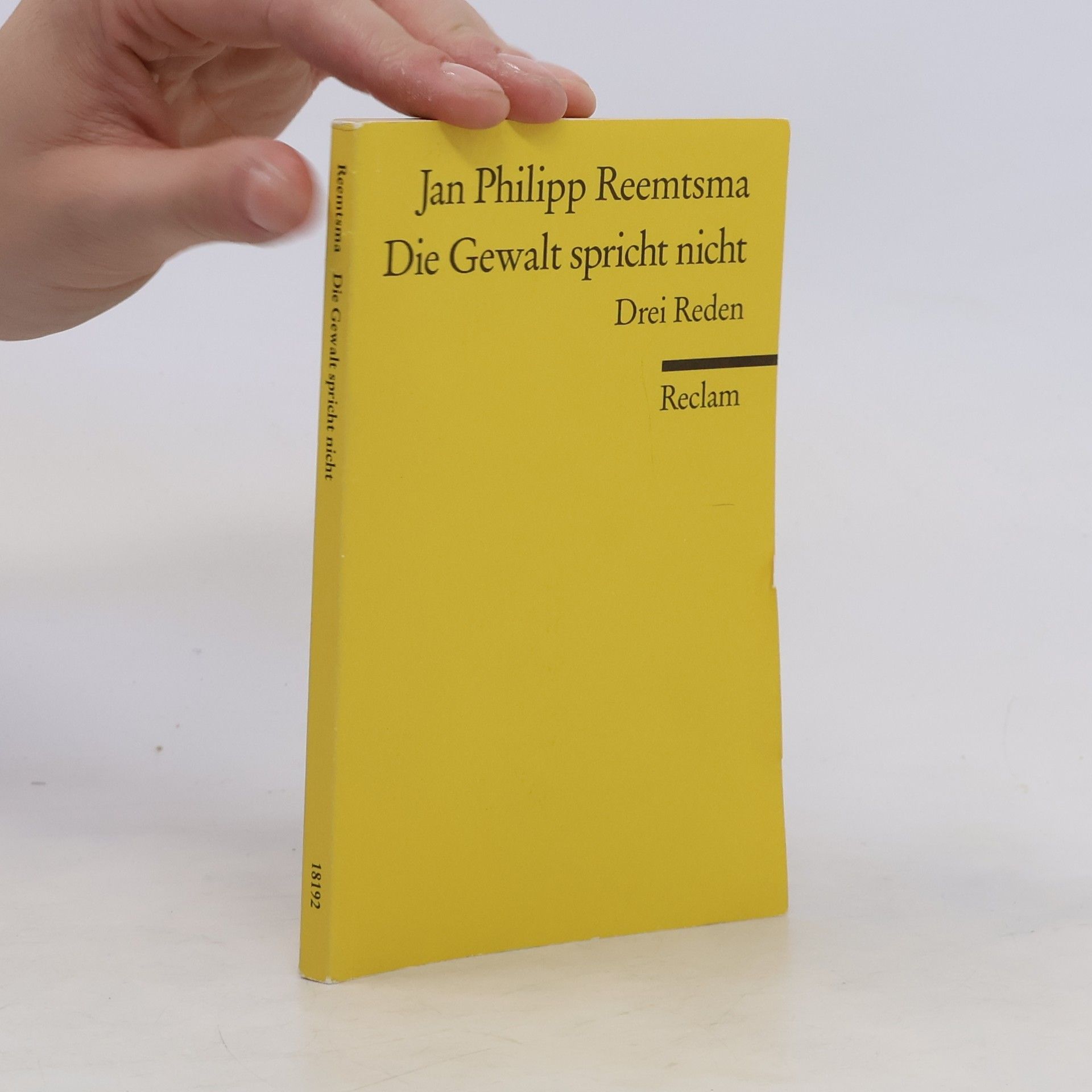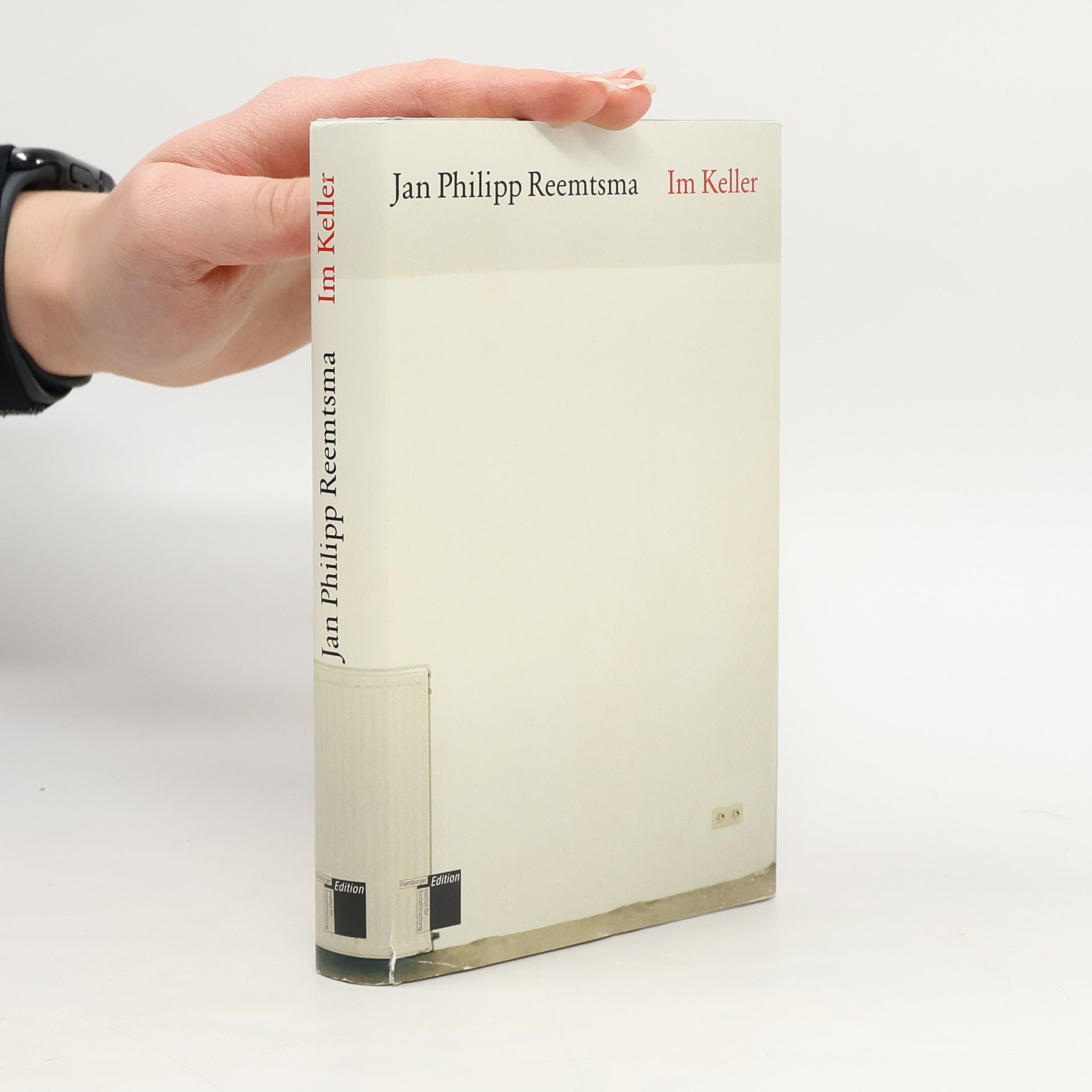Mit Christoph Martin Wieland beginnt die moderne deutsche Literatur. Er ist nicht nur der Schöpfer seiner eigenen Werke, sondern auch der «Erfinder» der Weimarer Klassik. Jan Philipp Reemtsma befreit Wieland in seiner ersten Biografie seit 70 Jahren aus dem Schatten von Goethe und Schiller. Diese aufregende und fulminante Darstellung gibt uns einen Klassiker zurück, der für das Verständnis der deutschen Literatur nach Weimar unerlässlich ist. Wieland war Innovator, Aufklärer, Schriftsteller, Journalist und Menschenkenner – eine zentrale Figur der deutschen Aufklärung. Er machte den Roman in Deutschland zu einer anerkannten Literaturgattung, schrieb die erste moderne deutsche Oper und brachte mit seinen erotischen Verserzählungen frischen Wind in die Poesie. Zudem gab er «Der Teutsche Merkur» heraus, eine der wichtigsten literarisch-politischen Zeitschriften Europas, und prägte das Genre des politischen Journalismus mit seinen Texten über die Französische Revolution und Napoleon, den er 1808 in Weimar persönlich traf. Reemtsmas grandiose Biografie, das Ergebnis jahrzehntelanger Forschung, bietet die Gelegenheit, Wieland neu zu entdecken. Sie wurde für den Bayerischen Buchpreis und den Preis der Leipziger Buchmesse 2023 nominiert und ist die erste Wieland-Biografie seit 70 Jahren.
Jan Philipp Reemtsma Books






Lange Zeit stand der Täter im Mittelpunkt kriminalpolitischer und strafrechtlicher Bemühungen, während das Opfer argumentativ nicht berücksichtigt wurde. Die Beziehung zwischen Täter und Strafrecht dominierte, wobei der Täter oft als Opfer staatlicher Vergeltungsmaßnahmen angesehen wurde. Das Verbrechensopfer, dessen Anspruch auf Gerechtigkeit der Staat im Namen des Gewaltverbots in die eigene Hand nahm, geriet in den Hintergrund. Heute hat sich die Perspektive gewandelt: Sicherheit vor Kriminalität steht im Vordergrund, und ein opferorientiertes Strafrecht gewinnt an Bedeutung. Der Staat wird eher als Schutzmann denn als Kerkermeister wahrgenommen. Dieser Wandel wirft zahlreiche Probleme auf, die Winfried Hassemer und Jan Philipp Reemtsma in ihrem Werk untersuchen. Sie konzentrieren sich auf die zentrale Frage, ob die Täterorientierung des Strafrechts ein unverzichtbares Merkmal des Rechtsstaats und ein Gebot der Verfassung ist. In ihrer differenzierten Analyse, die juristische, rechtspraktische, moralphilosophische und kulturhistorische Aspekte einbezieht, skizzieren sie ein Programm, das den Ansprüchen von Verbrechensopfern auf stärkere Berücksichtigung in Strafrecht und Kriminalpolitik Rechnung trägt.
Einige Hunde
- 115 pages
- 5 hours of reading
Der Hund ist der Begleiter des Menschen seit Jahrtausenden. Jan Philipp Reemtsmas Exkursionen zum „Hund in der Malerei“ unterscheiden, gelehrt und unterhaltend die verschiedenen Funktionen, die sie in der Malerei innehaben. »Hunde als Accessoires, die einfach nur das Bild mit einer optischen oder genrespezifischen Auflockerung versehen – und Hunde, die seltsam prominent im Bild erscheinen, ohne daß man, auf den ersten Blick, zu sagen vermöchte, was sie da eigentlich zu suchen haben.« So spannt sich der Bogen von Rembrandt bis Max Liebermann, von Watteau bis Lucian Freud. Vierzig Farbabbildungen illustrieren die Ausführungen. Und der Leser des Buches wird beim nächsten Museumsbesuch nach Hunden Ausschau halten.
Vertrauen und Gewalt
- 576 pages
- 21 hours of reading
Die Probleme der Gewalt bleiben komplex, wie Hannah Arendt vor 40 Jahren feststellte. Dieses Buch untersucht, warum die Soziologie Schwierigkeiten hat, die Phänomene der Gewalt zu erfassen. Jan Philipp Reemtsma analysiert, was Vertrauen in der Moderne bedeutet und wie es an die Legitimationsanforderungen des Gewaltgebrauchs gebunden ist. Er hinterfragt, wie extreme Destruktivität trotz des modernen Programms zur Gewalteinschränkung bestehen kann und warum das Vertrauen in die Moderne trotz der Gewaltexzesse des 20. Jahrhunderts fortbesteht. Das Werk beleuchtet verschiedene Aspekte der Gewalt und deren Beziehung zur Macht, untersucht, warum bestimmte Gewaltformen in der Moderne tabuisiert sind, obwohl sie weiterhin existieren, und analysiert die Wahrnehmungs- und Analyseprobleme, die daraus resultieren. Reemtsmas Ansatz ergänzt bestehende Perspektiven und nutzt eine besondere Beschreibungstechnik. Historische, politische, literarische und philosophische Entwicklungen werden mit konkreten Ereignissen verknüpft. Soziologische Reflexionen und historische Beispiele werden durch philologische Analysen bereichert, etwa durch die Auseinandersetzung mit William Shakespeare als Theoretiker von Macht und Gewalt oder Friedrich Schillers Konzept des Desperado in 'Wilhelm Tell'. Reemtsma bietet eine Arbeit, die dazu anregt, gewohnte Sichtweisen zu hinterfragen und das Verständnis der Beziehung zwischen Vertrauen, Gewalt und Macht zu verti
Die Gewalt spricht nicht
- 134 pages
- 5 hours of reading
Gewalt gibt es nur da, wo es eine schweigende Mehrheit gibt - Jan Philipp Reemtsmas Bändchen „Die Gewalt spricht nicht“ fasst drei Aufsätze über Nationalsozialismus, Gewalt und den Status der Opfer aus den Jahren 1996 bis 2000 zusammen (zwei davon werden hier erstmals einem größeren Publikum zugänglich gemacht). Drei herausragende Beiträge zur aktuellen Diskussion.
Krieg, Gewalt, Antisemitismus, Freiheit der Rede: Themen wie diese treiben uns in der Gegenwart um. Doch neu sind sie nicht. In drei bestechend klaren Reden analysiert Jan Philipp Reemtsma aktuelle Phänomene, indem er sie mit historischen Debatten und Ereignissen in Zusammenhang bringt. Es geht mit Christoph Martin Wieland um ein Verständnis von Aufklärung als einem andauernden Dialog, um die Einhegung kriegerischer Gewalt seit dem Dreißigjährigen Krieg und die Geschichte und Gegenwart des Antisemitismus. »In der Regel sind Probleme, mit denen man in seiner Gegenwart konfrontiert ist, gar nicht so neu, wie man fürchtet, und oft fürchtet man sie nur, weil man sie für neu hält.«
Über Arno Schmidt
Vermessungen eines poetischen Terrains
»Man kann Bücher leider nur einmal zum ersten Mal lesen. Die großen Autoren entschädigen für diese traurige Einmaligkeit dadurch, daß ihre Bücher bei der zweiten und dritten Lektüre sich erst wirklich entfalten.« In zwölf Annäherungen aus höchst unterschiedlichen Richtungen erkundet Jan Philipp Reemtsma das Schmidtsche poetische Terrain. Dabei wird deutlich: Arno Schmidts Bücher sind voll Witz und Komik. Reemtsmas Lektüreprotokolle bestätigen die These, wonach die Bedeutung eines Werkes daran gemessen werden kann, wie viele Verständnismöglichkeiten es eröffnet. Zugleich führen diese Essays vor: Diese Bedeutungsvielfalt, das Aufspüren überraschender Perspektiven und verborgener Zusammenhänge setzt einen Leser voraus, der sich genauestens an den Wortlaut der Texte hält und im selben Moment aufgrund seines Wissens eine Unzahl von Assoziationen freisetzt. Reemtsmas Freude während der Lektüre teilt sich in seinem Schreiben über Arno Schmidt mit: sie steckt zu eigenen Leseentdeckungen an. Politik, Sexualität, poetische Sendung – so vielfältig die Möglichkeiten sind, sich dem Werk Arno Schmidts zu nähern, so eindeutig ist die Einladung, diesen Ausnahme-Autor neu oder wieder zu lesen. »Was ist der Mensch? El hombre es un cigarro - am Ende bloß noch'n ausgeknatschter ekler Stumpm, und etwas Asche. – Was iss das Lebm? Die Auflehnung der Eiweiße gegen die Silikate.« Arno Schmidt
Mehr als ein Champion
- 180 pages
- 7 hours of reading
Dieses Buch erzählt vom Aufstieg, Ruhm und Niedergang des Muhammad Ali. Minutiös beschreibt der Autor die Choreographie der grossen Titelkämpfe. Und er porträtiert auch die Gegner Alis: Sonny Liston, George Foreman, Ken Norton und vor allem Joe Frazier, den stärksten der "big punchers"
»Die Tür wurde geschlossen. Er zog das Klebeband vom Kopf, sah sich an: die linke Hand voll Blut, am rechten Fuß die Kette. Er sah sich um: ein weiß verputzter Raum, etwa drei mal vier Meter, niedrig, knapp über zwei Meter.« Am 25. März 1996 wurde Jan Philipp Reemtsma vor der Tür seines Hauses in Hamburg-Blankenese niedergeschlagen und verschleppt. 33 Tage lang hielten ihn seine Entführer im Kellerraum eines angemieteten Hauses bei Bremen gefangen; erst nach Zahlung eines in der Geschichte der Bundesrepublik einmaligen Lösegeldes von 30 Millionen Mark kam er frei. »Eine Entführung, eine Zeit außerhalb aller anderen sozialen Kontakte als der antisozialen mit den Entführern, ist eine Zeit aufgezwungener Intimität. Und dies innerhalb eines extremen Machtgefälles: absolute Macht dort, absolute Ohnmacht hier. Das lässt man nicht im Keller zurück. Denn den Keller lässt man nicht zurück. Der Keller wird in meinem Leben bleiben, aber so wenig wie möglich von der mir dort aufgezwungenen Intimität soll in meinem Leben bleiben. Das einzige Mittel gegen Intimität ist Veröffentlichung.«



